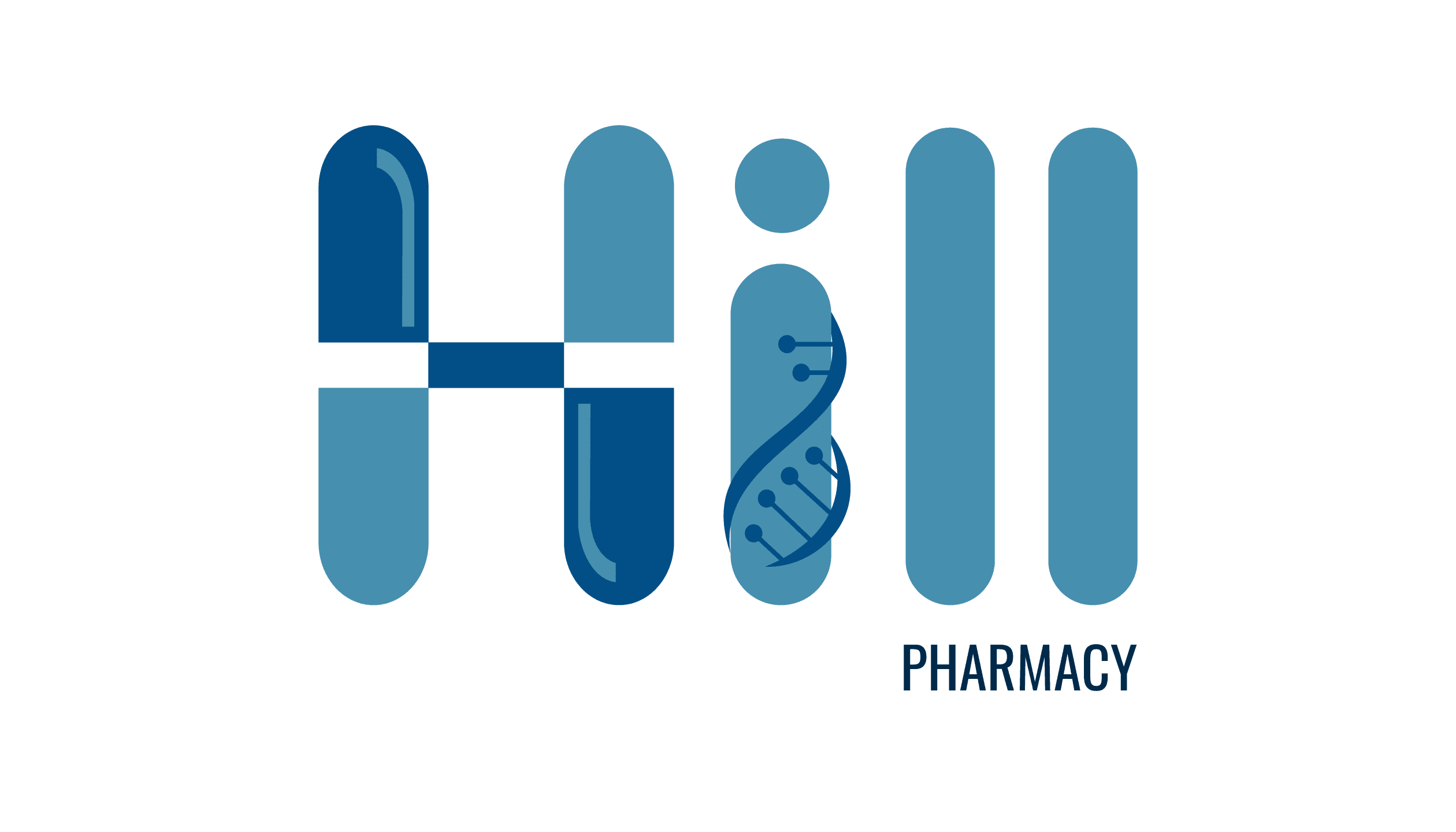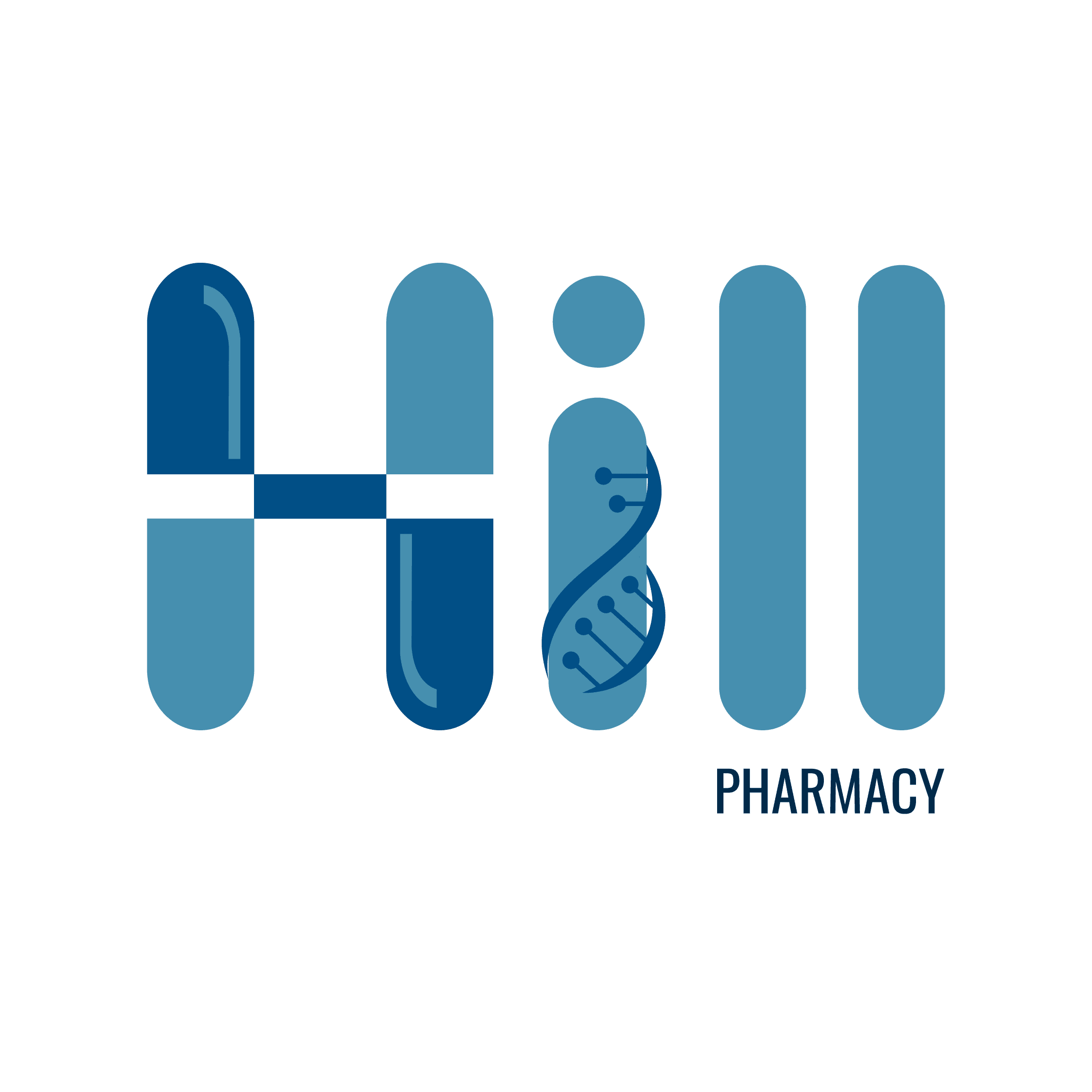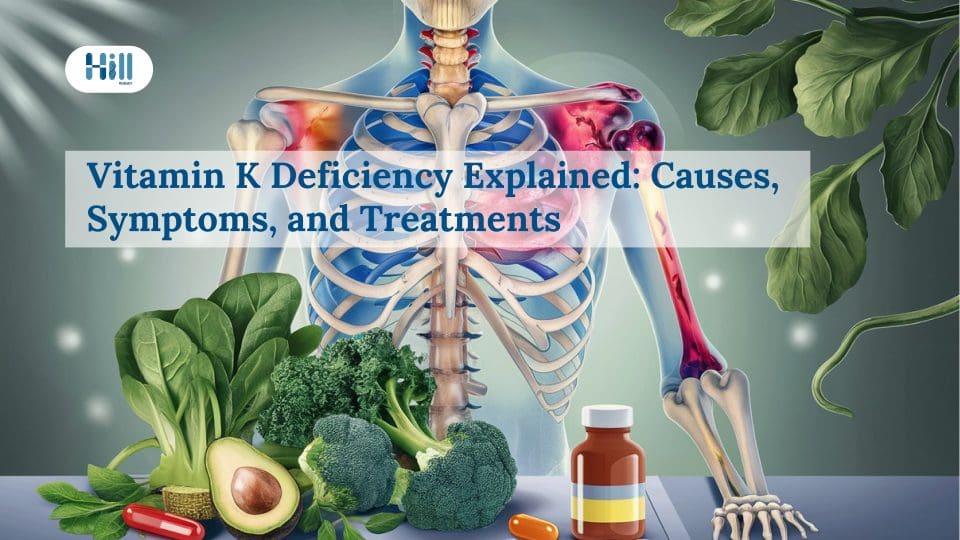
Many people ignore vitamin K deficiency until it causes major health problems. Even though it is rare for healthy individuals, it can have a big impact on your body, especially on bone health and blood coagulation.
We at HILL PHARMACY are committed to providing our community with the knowledge they need to avoid, identify, and treat this often-overlooked deficiency. The causes of vitamin K deficiency, its warning symptoms, and both natural and medical treatments will all be covered in this extensive guide.
What is Vitamin K and Why it matters?
Prior to discussing vitamin K deficiency, it’s critical to understand the definition of vitamin K and the reasons behind its necessity for your body. A fat-soluble vitamin that is essential for several body processes is vitamin K. It is most important for the protein synthesis needed for bone metabolism and blood coagulation.
Vitamins K is necessary for,
- Bone health: Assisting in the formation and metabolism of calcium.
- Blood coagulation: Stopping excessive bleeding from small wounds.
- Heart health: Keeping arteries free of calcium accumulation.
There are two main types of vitamin K:
- Vitamin K1 (phylloquinone): It is a fat-soluble vitamin that is mostly present in certain plant oils and green leafy vegetables. It is essential for bone metabolism and blood coagulation and is the primary dietary source of vitamin K. Blood clotting factors are modified and activated by the enzyme γ-carboxylase, which requires phylloquinone as a cofactor.
- Vitamin K2 (menaquinone): One of the two primary forms of vitamin K is this one. This vitamin is created by gut bacteria and is naturally present in fermented foods and animal products. Vitamin K2 is vital for bone health and blood coagulation because it activates proteins that aid calcium binding to the bone.
- Causes of Vitamin K Deficiency:
Vitamin K deficiency in the body can be caused by several factors. They are,
- Inadequate dietary intake: A deficiency may result from a lack of vitamin K-rich foods such as broccoli, kale, spinach, and fermented soy.
- Usage of specific medications: Prolonged use of cholesterol-lowering medications, anticoagulants (such as warfarin), and antibiotics can affect how well vitamin K is absorbed or functions.
- Fat malabsorption: Because vitamin K is soluble in fat, diseases that affect the absorption of fat, such as Crohn’s disease, cystic fibrosis, or celiac disease, can lower vitamin K levels.
- Liver diseases: Vitamin K is processed by the liver. Its function may be affected by liver disease.
- Newborn vulnerability: Low levels in breast milk and placental transmission make vitamin K deficiency common in newborns.
- Alcohol: Long-term alcohol usage can affect liver function and nutritional absorption.
- Recognize Vitamin K Deficiency Symptoms:
Early detection of vitamin K deficiency symptoms can help avoid more serious consequences. The deficiency of vitamin K in newborns is especially harmful. It may result in a potentially fatal illness known as Vitamin K Deficiency Bleeding (VKDB). The following are the most typical symptoms of a vitamin K deficiency:
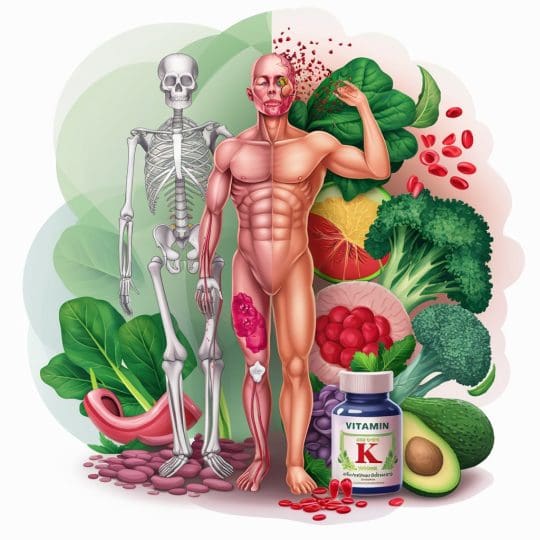
- Excessive bleeding from surgery sites, wounds, or cuts.
- Bruising on the skin.
- Bleeding nose.
- Gum bleeds
- Heavy bleeding during the menstrual cycle.
- Blood in stool or urine.
- Wound healing is slow.
- Long-term bone deterioration, or osteopenia.
Vitamin K and Blood Clotting:
Blood clotting is one of the main and most important functions of vitamin K. The production of prothrombin, a protein required for clot formation, is inhibited in the absence of sufficient vitamin K. Therefore, persistent bleeding could result from even slight injuries. Since vitamin K intake has a direct impact on the effective use of blood-thinning medicines, we at HILL PHARMACY frequently advise patients on these medications to keep an eye on their intake.
Vitamin K Deficiency in Newborns:
A known medical condition in newborns is vitamin K deficiency. Low amounts of vitamin K are naturally present in newborns due to the vitamin’s ineffective placental transit. The newborn’s gut does not contain the bacteria necessary to generate vitamin K, and breast milk only contains small amounts of the vitamin. Newborns are typically given a vitamin K injection shortly after birth in order to prevent Vitamin K Deficiency Bleeding (VKDB). This small action has saved many lives. We at HILL PHARMACY strongly support this life-saving procedure and provide advice for parents if they have any concerns.
Vitamin K Deficiency Treatment:
The level of vitamin K deficiency and its underlying cause determine the optimal course of treatment.
- Medical Treatments:
- Injectable or oral vitamin K supplements: To replenish the body’s stores quickly, doctors frequently recommend vitamin K1 (phytonadione).
- Resolving the underlying cause: Changing drugs that interfere with vitamin K or treating illnesses that affect the absorption of fat can be beneficial.
- Natural Treatments:
Here’s is how to treat vitamin K deficiency naturally,
- Consume more vitamins k rich foods: leafy greens, such as Swiss chard, spinach, and kale; Brussels sprouts and broccoli; Foods that are fermented, such as natto, a soybean dish from Japan; Dairy products, eggs, and liver.
- Include healthy fats in meals (improve fat absorption): Due to its fat-soluble nature, vitamin K might be better absorbed when consumed with healthy fats like avocado, almonds, or olive oil.
- Boost your gut health: To help the gut bacteria produce vitamin K2, eat fiber and probiotics.
- To avoid VKDB, make sure newborns receive vitamin K injections.
- Unless prescribed, stay away from long-term use of antibiotics or drugs that interfere with vitamin K.
- If you have long-term liver or digestive system disorders, you should have regular checkups.
At HILL PHARMACY, we provide a variety of vitamin K supplement alternatives, and our pharmacists will help you determine the appropriate amount based on your current health situation.
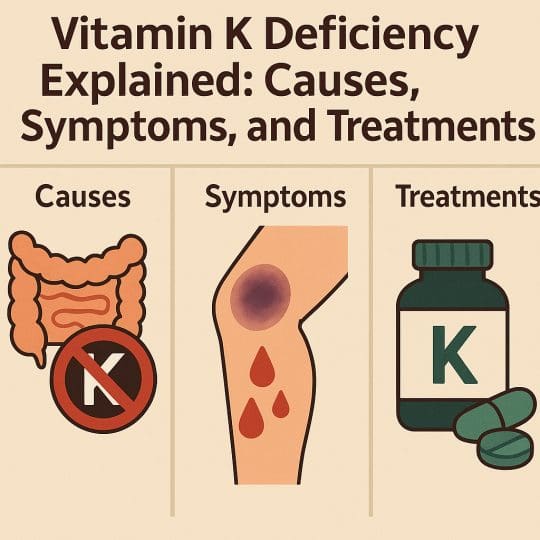
Vitamin K Supplement Benefits:
Vitamin K supplements may be required if your body has trouble absorbing it from diet alone. The following are the vitamin K supplement benefits:
- Improves blood coagulation
- Reduces bleeding.
- Increases bone strength and decreases fracture risk.
- Supports heart health through the prevention of arterial calcification
Both prescription and over-the-counter supplements are available at HILL PHARMACY. Our pharmacists will assist you in identifying the best and safest choice.
Understand the difference: Vitamin K Deficiency Vs Overdose:
An excessive amount of vitamin K worries some people. However, in practice, vitamin K overdose is very rare, particularly from food sources.
- Vitamin K Overdose: Overdose of vitamin K is rare and typically results from synthetic supplements. May cause problems with blood thinners if used in excess.
- Vitamin K Deficiency: Deficiency in vitamin K causes bone weakening and bleeding problems. Requires dietary modifications or medical care.
Note: Before taking supplements, always get advice from your doctor or pharmacist, particularly if you’re on medications that interfere with clotting.
How HILL PHARMACY Can Help
Even though vitamin K deficiency isn’t the most well-known health problem, it can have a negative influence. Addressing this shortage is essential whether you’re worried about blood clotting and vitamin K, having trouble with bruises, or simply looking to eat healthier.
We at HILL PHARMACY do more than just fill prescriptions. Our experts can assist you if you’re suffering from vitamin K deficiency,
- Examine your symptoms.
- Make appropriate diagnostic and treatment recommendations.
- Provide individual supplement regimens.
- Assist you in selecting the best meals high in vitamin K. Assist you in understanding how vitamin K interacts with your medication.
Our goal at HILL PHARMACY is to make you feel your best. Call us or stop by today to talk to a pharmacist. In addition to discussing natural vitamin K deficiency treatments, we can assist you in recognizing the symptoms of vitamin K deficiency and help you get back on track for improved health.
